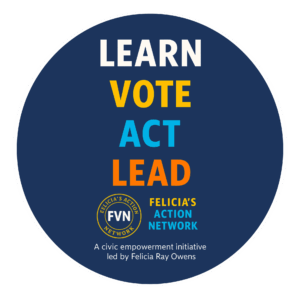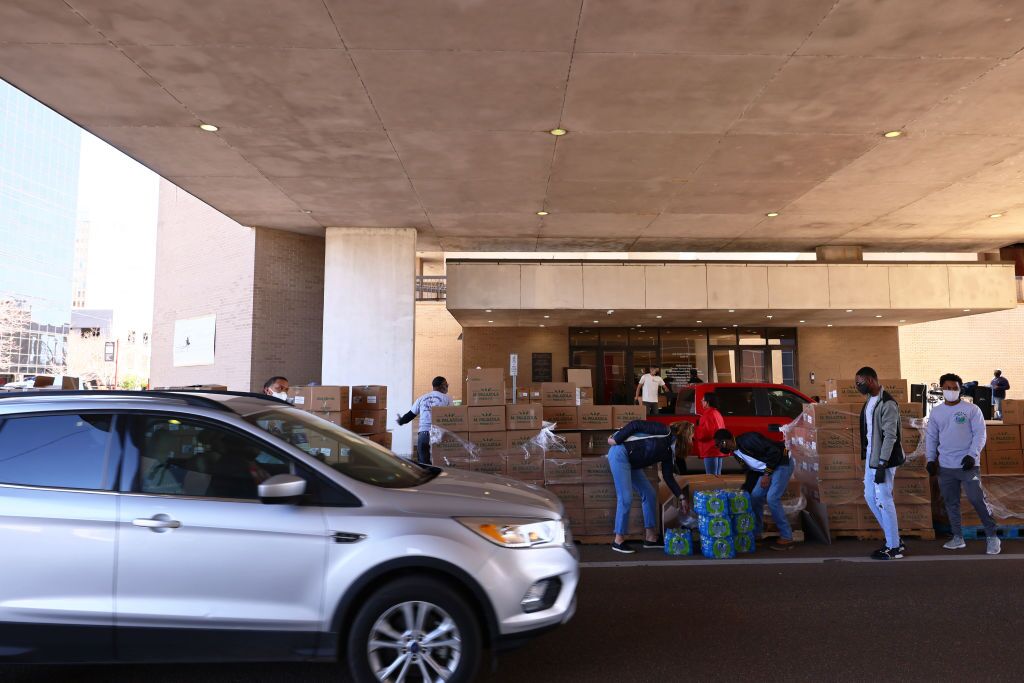
Daily Show for June 05, 2025
June 6, 2025
7 Supreme Court Cases That Black Americans Should Track This Summer
June 6, 2025Across the country, moms are calling for policies rooted in dignity, not bureaucracy.
We are living in challenging times. Fundamental rights are under attack, the economy is teetering on the edge of a recession, and our already-insufficient social safety net’s holes grow larger by the day. It is never easy to live in poverty in America, but the past four-plus months have managed to make a bad situation worse.
As I often say, policy only changes at the speed of narrative. And unless we start truly listening to the real stories of families living in poverty—with all their challenges, joys, complications and layers—we won’t be able to change poverty policy in this country.
In this time when so much effort is being put into erasing the history and stories that have stacked our systems, particularly against poor, Black women, for as long as this country has existed; the organization I lead is more committed than ever to hearing, sharing and amplifying the stories of the residents we serve, who are mostly mothers. Centering their voices is key to our work, including our ongoing series with Ms. in which we get to hear from moms in their own words. Not just their struggles—but their dreams for the future, what’s bringing them joy in this moment.
The power of these narratives was on full display during our recent Night of Storytelling. For half a decade, we’ve invited mothers from our community to take the stage and share their perspectives. This year, we asked each of our storytellers to reflect on the theme of care. Four incredible women shared stories about caring for their children, their extended families, their communities and themselves. They spoke about the harmful systems and policies our leaders have created that function as roadblocks, rather than pathways out, as they try to navigate the nearly impossible task of pushing their way out of poverty.
The challenges are real, but they are also just one part of each person’s story. Each storyteller also talked about being unwilling to compromise on their dreams—even when the systems and circumstances seemed stacked against them—and their belief that their families deserve the same dignity, trust and care that are afforded to others. And as one mother, Amaya, eloquently said, each of these mothers was clear that their income does not determine their character, and they are tired of being treated as if it does.
After their stories, we were treated to a conversation between the mothers and Dr. Tressie McMillan Cottom, who encouraged us to remember that nothing in the history of the world has ever changed the world except a story, and whose story gets told will ultimately determine the change we see. In her signature style of getting directly to the point, she also succinctly summarized a central theme to the mothers’ experiences: “more cash, less paperwork.” This is exactly what we mean when we talk about shaping policy based on lived experience, as I took this same message to Capitol Hill to testify in support of making welfare less paternalistic, and thereby more effective.
Amaya, a mom of two, contrasted her experience receiving direct cash through our Magnolia Mother’s Trust program with her previous interactions trying to get government support: “There really wasn’t any paperwork, and everyone was nice.”
As Amaya laid out here in Ms., the money has been both a financial and emotional lifeline:
“I bought diapers, paid my car note and the light bill. That feeling of being able to take care of things has relieved a lot of stress. Before, it was so hard. I would cry in the shower so my kids wouldn’t hear me.”
Being treated with dignity and respect should be a given, yet generations of leaders have shaped our systems to create shame, pass judgment and ignore root causes of inequality. By highlighting the stories of those actually experiencing the deficiencies of our current policies, we are forging a roadmap to a better future.
We know the path is long and winding—but we also keep faith in the belief that as our collective power grows, the destination becomes inevitable.
Watch this year’s Night of Storytelling here:
Read more: In Front and Center, hear directly from Black women navigating existing social safety net programs, while also trying to care for their families and build a career—their struggles, their children, their work, their relationships and their dreams for the future.
!function(f,b,e,v,n,t,s)
{if(f.fbq)return;n=f.fbq=function(){n.callMethod?
n.callMethod.apply(n,arguments):n.queue.push(arguments)};
if(!f._fbq)f._fbq=n;n.push=n;n.loaded=!0;n.version=’2.0′;
n.queue=[];t=b.createElement(e);t.async=!0;
t.src=v;s=b.getElementsByTagName(e)[0];
s.parentNode.insertBefore(t,s)}(window,document,’script’,
‘
fbq(‘init’, ‘200522034604820’);
fbq(‘track’, ‘PageView’);
Great Job Aisha Nyandoro & the Team @ Ms. Magazine Source link for sharing this story.








